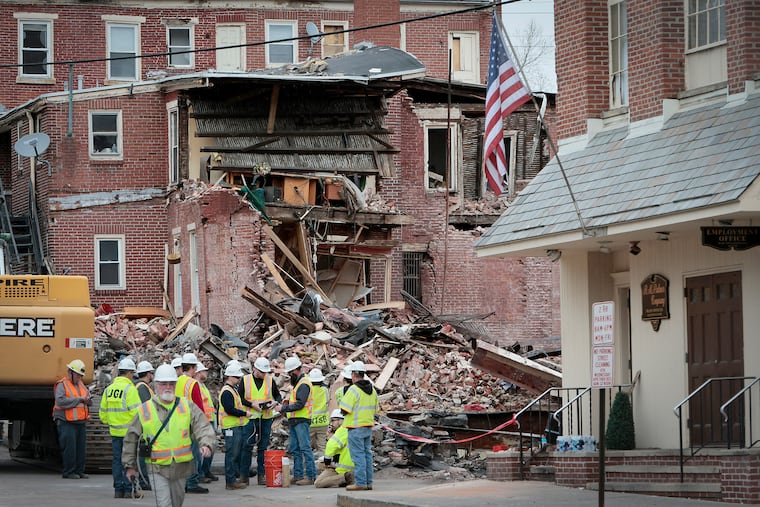Lawyers prefer to try cases in Philadelphia, even if plaintiffs are not local, due to favorable legal conditions and jury demographics.
On March 24, 2023, a catastrophic explosion at the R.M. Palmer Co. chocolate factory in West Reading, Berks County, resulted in significant loss of life and property damage. The blast, which released towering columns of smoke into the atmosphere, claimed the lives of seven individuals and injured ten others. The incident has not only disrupted the community—displacing three families—but also incurred an estimated million in damages. Following a thorough investigation, the National Transportation Safety Board (NTSB) determined that the probable cause of the explosion was a natural gas leak stemming from a deteriorated plastic pipe, which generated gas inside the factory. This gas was ignited by an unidentified source, culminating in the tragic explosion at the facility renowned for its hollow chocolate Easter Bunnies.
In the wake of this disaster, 27 lawsuits have been filed against R.M. Palmer, UGI Utilities, and DuPont by victims, their families, and local residents of this borough comprising approximately 4,500 inhabitants. Despite West Reading being located 65 miles northwest of Philadelphia, the cases have been situated in the Philadelphia Court of Common Pleas. Recently, after a protracted and contentious legal struggle lasting two years, a judicial ruling confirmed that the lawsuits will remain in the Philadelphia court system. Notably, none of the plaintiffs or the businesses involved have headquarters in Philadelphia.
This jurisdictional dispute underscores the critical importance of venue selection within litigation processes and reflects a strategic inclination among plaintiff attorneys to choose Philadelphia as the setting for their cases. Statistical evidence indicates a marked uptick in civil litigations, particularly after the Pennsylvania Supreme Court removed restrictions on where medical malpractice cases can be filed. The Philadelphia court, which has gained notoriety for issuing substantial verdicts against defendants, recorded a significant spike in such lawsuits—from 275 in 2022 to 616 in 2024.
Defendant attorneys argue that the trend is driven more by plaintiffs’ quest for favorable verdicts than administrative efficiency. The Philadelphia judiciary has acquired an unsavory reputation among some circles for issuing large jury awards, leading to its designation as a “judicial hellhole” by the American Tort Reform Foundation. Conversely, proponents of the Philadelphia courts assert that the system resolves cases more rapidly than in other parts of Pennsylvania.
As this case proceeds, defense attorneys attempted to transfer the lawsuits to Berks County, arguing logistical challenges and their limited business footprint in Philadelphia. However, the presiding judge, Gwendolyn Bright, determined that the cases should remain in Philadelphia, consistent with a broader judicial trend that often favors current venues.
Ultimately, the ongoing legal battle serves not only as a response to a tragic event but also as a case study on venue strategy and the evolving landscape of litigation in Pennsylvania. With the concerns surrounding victim support and corporate responsibility brought to the forefront, this intricate case is likely to continue capturing public attention as it unfolds in the Philadelphia legal system.







